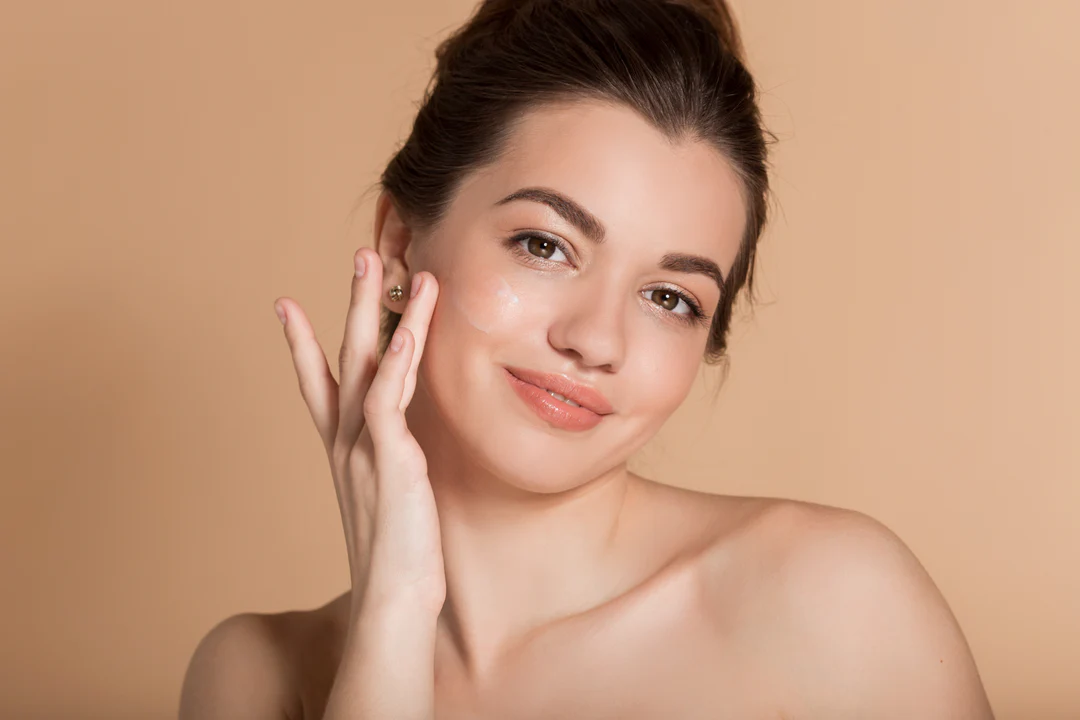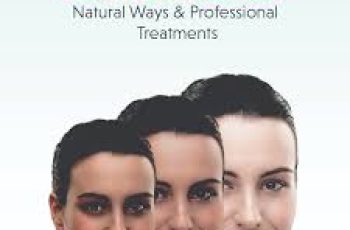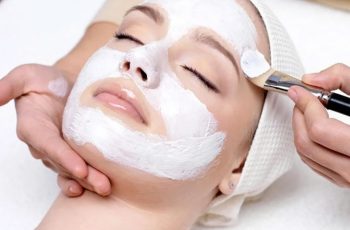Retinol Skin Care Benefits – Why is Retinol Good for Skin?
Retinol, maybe you’ve heard of it, maybe you even use it in your skincare routine, or maybe you have no idea why you should use retinol at all. That’s why I decided to provide a simple explanation of the benefits of this amazing ingredient and why you should use it!
Why Should I Use Retinol?
Retinol is extremely beneficial for the skin and it multitasks better than a parent of three kids! If you have skin issues like B, enlarged pores, fine lines, wrinkles, uneven skin tone, uneven skin texture. Believe it or not, retinol
can solve all of these problems!
You’ll notice a dramatic change in your skin after about 4 weeks of use, and the results will be even more noticeable if you continue to use it regularly after 3 months.
Your skin will feel firmer, plumper, and look younger. Fine lines and wrinkles are smoothed out, and skin looks smoother overall. Lastly, any skin pigmentation caused by sun damage or acne scars will be visibly reduced. Yes, it really is that good! What is Retinol? Retinol is a form of vitamin A that can boost skin renewal when you incorporate it into your skin care routine. By helping the skin renew itself, you’ll notice your skin has a healthy glow all year round, as dead skin cells tend to linger on the surface of the skin, giving it a dull, matte appearance. Retinol also penetrates the lower layers of the skin and supports collagen production, which is essential for maintaining youthful and healthy skin. After the age of 30, collagen production begins to decline. As discouraging as it may sound, retinol is the first step to addressing this problem, and the sooner you incorporate it into your daily routine, the more preventative benefits you will reap! Other issues such as sun damage have also been reported to be
significantly reduced. When it comes to sunburn, remember that you can’t make it go away completely, but over time, pigmentation will lighten and be less noticeable to the naked eye.
When should I use retinol?
There are a lot of conflicting opinions and information on the internet regarding many topics regarding retinol! The most common claim is that using retinol during the day can actually speed up skin aging or even prematurely
and may cause skin irritation and possibly burns.
This is not true, the only possible problem with using retinol during the day is that sunlight can reduce the effectiveness of the retinol and render it ineffective! To really get the benefits, it is best to use it at night before bed.
How to Use Retinol?
Retinol is a complex product, mainly because it comes in varying strengths and can cause skin reactions if used in excess. This is the best way to introduce retinol into your daily routine without causing irritation, burning, or discomfort.
Start by choosing a lower retinol content, such as 0.3%. Use it twice a week in the evening for the first two weeks. You can then use it every other night for the next two weeks. Over the next few weeks, your skin will get used to using the product every night. As your skin gets used to retinol, the percentage can be increased to 0.5%, 0.6%, 1%, and 2%.
If you want to introduce retinol without any reactions, it is best to follow this routine. It is one of the most confusing and complex ingredients, but once you have a good starting point for using it, there are few problems.
Come back soon!
Can I use retinol if I have acne?
Retinol is a very powerful ingredient that opens up pores, promotes skin renewal, and supports cell turnover. All of this helps make blemish-prone skin look healthy and easier to care for while fighting blemishes. If you follow the steps above, you will notice a significant reduction in spots or blemishes.
Retinol also helps eliminate hyperpigmentation left over from acne scars, and after three months of use, you will no longer notice the hyperpigmentation with the naked eye.
All skin types will see noticeable differences when using retinol, including signs of aging, sun damage, uneven skin texture, and more. If you are still concerned that retinol is not working for your skin, talk to your family doctor or dermatologist for professional advice.
If you are pregnant, nursing, or taking medications that cannot be taken with vitamin A, you may not be able to incorporate retinol into your daily routine. Can I use AHAs and BHAs with retinol?
There is a lot of conflicting information about using liquid exfoliants like AHAs or BHAs with retinol. Many claim that using both products can cause skin stress and adverse reactions. I can put your mind at ease by telling you that this is not the case.
Both products work on different layers of the skin: Retinol affects the movement of cells in the lower layers of the skin, while liquid exfoliants like AHAs and BAHs remove dead skin cells in the upper layers of the skin.
Because they don’t compete with each other or overload your skin with exfoliating formulas, they actually form a powerful duo that work together to keep your skin looking healthy and radiant.
That concludes my review of Retinol. Hopefully, you now have a better understanding and appreciation of this powerful (albeit complex) ingredient.
DQH Knowledge drop: In your 20s, your skin cell turnover decreases. (Cell turnover is a key component in keeping your skin youthful.) You know what else slows down? Your collagen production. Starting in your 20s, collagen decreases by about 1 percent per year. Should you want to prevent fine lines and wrinkles, start by eliminating behaviors that contribute to premature aging. “If it’s bad for you, it’s bad for your skin,” says dermatologist Michel Somenek.
“Cigarette smoking reduces blood flow to the skin and causes premature wrinkling and a dull skin texture. Making the repeated pursed motion to inhale can also cause smoker’s lines. Alcohol and recreational drugs are toxins for the skin that damage its cellular structure and DNA,” Somenek tells us. “The faster you eliminate vices while you are young, the better chance your skin and body have to recuperate.” Also, adopting an anti-aging routine in your 20s is key. After all, the best offense is a good defense. We spoke to Somenek and experts Joshua Ross and Audrey Kunin to find out more.
Keep reading for the best anti-aging products for your 20s, according to skincare professionals.
Sunscreen
“We all know that the sun is the number one cause of skin aging and starting the prevention in your 20s is very important,” Ross says. “The majority of your sun damage won’t start to appear until you’re in your 30s, so don’t wait until you see it surface or you’ll be behind the curve. Stay ahead of it with a good-quality zinc-based sunscreen worn daily.”
Farmacy Green Defense Daily Mineral Sunscreen
An invisible sunscreen with SPF 30, plus botanical extracts meant to protect skin with tons of antioxidants. Bonus: It’s clean and fine to use under makeup.
Bareminerals Complexion Rescue™ Tinted Moisturizer Broad Spectrum SPF 30
Although we recommend you use your SPF and moisturizer separately, we also understand moments when you don’t have time or energy for that extra step. For those times, this bareMinerals moisturizer is a great thing to have on hand.
Vitamin C Serum
“A great introduction to anti-aging is to start with a vitamin C serum in your morning skincare routine,” Ross says. “It’s a powerful antioxidant that will neutralize free radicals and brighten the skin.” He adds that it’s a great way to counteract the effects of the sun’s harmful rays, which, as previously mentioned, are among the biggest causes of premature aging.
Drunk Elephant C-Firma™ Vitamin C Day Serum
The Drunk Elephant C-Firma is a lightweight serum that promises to give skin a glow by combining the brightening powers of vitamin C with ferulic acid, l-ascorbic acid, and vitamin E. The included sodium hyaluronate is meant to replace hydration loss, so you shouldn’t have to deal with any irritation.
Sunday Riley C.E.O. Rapid Flash Brightening Serum
This potent serum is jam-packed with vitamin C (15 percent, to be exact), which means it’s a potential superstar at both brightening skin and dousing it in antioxidants.
Peptides
Using peptides on your skin has many benefits, says Somenek. “The skin barrier is what defends the body against pollution, UV rays, bacteria, and toxins. It can be damaged by several everyday factors. Using topical peptides aids in building a stronger barrier,” he says. “Peptides comprise elastic fibers, which are a type of protein. These fibers help to make skin appear taut and firm. Peptides can also help repair damaged skin, relieve inflammation, and even out skin tone. Some peptides can kill acne-causing bacteria that is common in 20-somethings.”
Kunin agrees, saying, “Peptides are an excellent entry point for supporting collagen.” She recommends looking for face and eye treatments that contain these collagen-boosting powerhouses.
Charlotte Tilbury Magic Eye Rescue Cream
This Charlotte Tilbury super-emollient eye cream has a base of coconut oil and shea butter (read: it’s incredibly hydrating). Botanicals plus peptides are meant to help reduce dark circles and boost collagen, respectively.
This creamy moisturizer serves up potent collagen-boosting peptides and pycnogenol, and antioxidant-rich vitamin C. “Instead of sitting on top of the skin, peptides penetrate the outer layer so they go deep. The ‘signals’ they send tell the cells to produce elastin and collagen, which are needed for youthful-looking skin,” explains Somenek.
At-Home Peel Pads
Remember that skin cell turnover fiasco we talked about earlier? One way to help support it is by exfoliating. “Exfoliation is important to help keep skin fresh and luminous,” Kunin says. She recommends using at-home peel pads as an easy and effective way to exfoliate.
“The goal in your 20s is to fight the slowing pace of cell turnover. It is wise to use products that gently exfoliate, yet still remove oil and other impurities. Products that have Alpha Hydroxy Acids (AHA) or Beta Hydroxy Acids (BHA) are a good choice.”
According to Somenek, you should only exfoliate two to three times a week. “People of all ages are guilty of over-exfoliating and that can be too much of a good thing,” he says.
Dermadoctor Kakadu C Intensive Vitamin C Peel Pad
A few swipes of this Derma Doctor powerful peel pad promise to leave your skin glowing and smooth, thanks to the seven (yes, seven) types of chemical exfoliants, including AHA and BHA. It also contains vitamin C via Kakadu plum extract for added brightening and antioxidant protection.
KEY INGREDIENTS Kakadu plum extract is sourced from the Kakadu plum, a fruit grown in northern Australia. It contains vitamin C, which restores the skin’s natural barrier, increases collagen production, and soothes irritation.
Dr. Dennis Gross Skincare Alpha Beta® Universal Daily Peel Pads
These are the gold standard of peel pads, with a cult following and over 900 five-star reviews on Sephora. They’re easy to use and contain a blend of anti-aging exfoliating acids.
Emollient Night Cream
“In your 20s, you need to start upping the hydration in your skincare routine. You may have been cautious of over-moisturizing because of acne in your teens, but as you enter your 20s, your skin transitions and becomes drier,” Ross says. “I recommend an emollient night cream added into your evening skincare regimen.”
“Twenty-somethings need to make sure that they are not using creams that will clog their pores and cause excess oil production,” says Somenek. Opt for non-comedogenic products.
Cerave Skin Renewing Night Cream
One great choice is the CeraVe Skin Renewing Night Cream, which is a non-comedogenic night cream that leaves skin soft and glowy. It combines the moisturizing powers of ceramides and hyaluronic acid.
RoC Retinol Correxion Max Hydration Creme
“The best night cream ingredients contain retinol, benzoyl peroxide, and/or salicylic acid or hyaluronic acid. The goal is to moisturize, yet remove excess oil,” says Somenek. This Roc Retinol Correxion cream fits the bill as it contains both hyaluronic acid and retinol so it promises to moisturize while also being non-comedogenic.



